ChatGPT & Artificial Intelligence: New technology sparks curiosity, concern
March 31, 2023
Elizabethan sonnets about Dora the Explorer, essays about Shakira’s World Cup performance in Spanish and poems about pollution in the style of Dr. Seuss: the possibilities presented by ChatGPT are endless. Launched on Nov. 30, 2022, ChatGPT is a computer chatbot that uses artificial intelligence (AI) to respond to user questions using natural human language.
While a search engine such as Google responds to queries by identifying websites where the user can obtain the requested information, ChatGPT—which stands for “Chat Generative Pre-Trained Transformer”—synthesizes information it finds on the Internet and produces a curated response. Depending on the original inquiry, the response may be the answer to a question, a short essay or even lines of computer code. By January 2023, ChatGPT had over 100 million users worldwide, making it the fastest-growing consumer application in history.
Although ChatGPT has shown itself to be a powerful tool, it has created concern among many observers. Some educators, for example, worry about how ChatGPT might lead to plagiarism and negatively impact students’ work ethic and originality. Currently, FCPS students are blocked from using ChatGPT on school devices, but staff have been given access to the platform.
“As technologists we have seen what a powerful tool Artificial Intelligence can be in a number of different use cases,” the FCPS Department of Information Technology said. “For that reason, we have kept ChatGPT available to FCPS staff to explore the possible value such a tool might bring to our community. We have also started a cross-functional work group of staff to take a deeper dive on the topic.”
Before a new digital tool such as ChatGPT is made available to students, FCPS needs to ensure the technology complies with federal content regulations for anyone under 18 and that the manufacturer’s terms of service are acceptable. The digital resource must also pass additional benchmarks including those for student safety and data security.
“We don’t yet have enough evidence with ChatGPT to ensure it passes all of those benchmarks. We also need to understand if the tool restricts any mature content generation as the output from this specific technology is vastly different from previous tools/technologies,” the FCPS Department of Information Technology said.
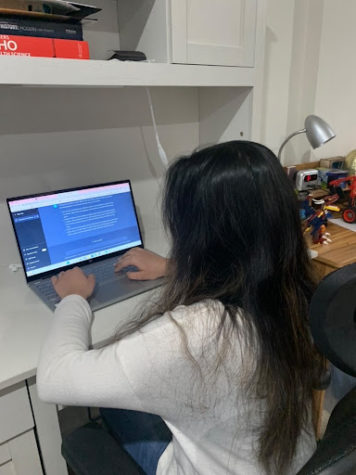
ChatGPT’s Evolution: From nonprofit to major player
ChatGPT was created by OpenAI, a non-profit company founded in 2015 with a focus on developing AI that would benefit humanity. Despite its altruistic beginnings, OpenAI transitioned from a non-profit to a “profit capped” company in 2019 (profit is capped at 100 times an investment).
“ChatGPT just kind of appeared, even though it’s been around for a while,” programming teacher Matt Keel said. “It became social media famous really, really fast.”
ChatGPT is currently free for users, but OpenAI has introduced a paid version of the chatbot, “ChatGPT Plus,” for $20 per month that provides faster speeds and access during periods of high demand. In the future, more pricing plans will likely be rolled out as the OpenAI CEO Sam Altman has called the computing costs for ChatGPT “eye-watering.”
While school districts and others continue to debate the use of the new technology, Microsoft is striving to improve ChatGPT. According to the Microsoft blog, Microsoft’s multi-year, multi-billion dollar investment in OpenAI will fund the development and deployment of supercomputing systems to accelerate OpenAI’s research and integrate OpenAI across Microsoft products. Microsoft also plans to offer citations for Bing ChatGPT search results so users can see the source of the information they are provided.
Positive Aspects of AI: ChatGPT brings efficiencies to search process
Although ChatGPT may be perceived by some as a threat to creative and authentic thought, the entry of ChatGPT into the sphere of technology has introduced many new capabilities, including being able to translate large masses of information into something comprehensible. Virtually anyone with access to the Internet, including people with no particular technological expertise, can type a query into the chatbot and quickly receive a response that might have otherwise taken hours or days to compile.
“I imagine there are moments where you have vast amounts of information that you have to be able to pull together quickly, and using a chatbot type of technology could help pull it all together and make sense of it,” English teacher Jennifer Dean said. “We have such large-scale institutions, it could be helpful to save on some labor that is time-intensive.”
This ability to compile data quickly and efficiently is a key component of ChatGPT’s popularity, with its capability to generate texts, reports, dialogue and writing similar to that of a human.
“I like how Chat GPT writes in a very descriptive way that’s almost even human,” senior Ishika Maisha said. “It’s really hard to tell whether it’s human or not. I have a friend who had Chat GPT write a foodie review on mochi, and it had the most gorgeous description ever; it was detailed and when I put it in Grammarly, it gave 100% on grammar, no errors or anything.”
The benefits of being able to write code, help with homework assignments and improve composition are all innovative uses of Chat GPT. For companies that employ the technology, ChatGPT can be used to increase productivity, improve customer service, reduce expenses and provide translation support for various languages when communicating abroad, according to WeeTechSolution.com.
“What I explained to some of my programming students is like ‘did you have math class when you’re in elementary school? You learned to add, but you use a calculator now. But you got to understand how the calculator works’,” Keel said. “I think that’s how these things are going to be, where it’ll write a report for you, but you’re going to need to read the report. What are you trying to learn from writing a report?”
Negative Aspects of AI: Is ChatGPT code for a dumber future?
After the initial excitement that was generated around ChatGPT’s release, critics have begun to identify weaknesses in the chatbot and question aspects of the new technology. OpenAI itself notes that ChatGPT may respond with reasonable-sounding but inaccurate answers, be wordy and repeat certain phrases and show bias or respond to harmful instructions. ChatGPT has also been known to improperly cite sources and make up quotes.
In addition, there are other limitations with the technology that OpenAI has acknowledged. In 2021, ChatGPT was fed a massive amount of data that was available on the Internet, and while it was “trained” on millions of documents to understand and answer user requests, it is not error free. As a result of its training set, ChatGPT cannot currently provide information on events that happened after September 2021.
“I think like any good search engine, ChatGPT is a starting place for something,” an anonymous student said. “I have used it for assignments as a starting point, so I’d be like, ‘what are examples of literary devices in this text?’ and then could find them. It’s not as good as my own, so I would use it as an idea, but I wouldn’t use it exactly.”
In academic contexts, school districts around the country have raised concerns about how ChatGPT will affect student learning. In addition to FCPS, the Los Angeles Unified School District, New York City Public Schools, and Seattle Public Schools are among the school districts that have banned student use of ChatGPT, in part because of concerns regarding student cheating.
“We know there is a lot of coverage in the media about ChatGPT being used in not-so-positive ways like plagiarism and cheating, which we would not want to encourage in FCPS,” the FCPS Department of Information Technology said. “So, our challenge to our FCPS students is to help us figure out how the service might be used to support and enhance learning. If you have ideas, send them our way to share with the work group.”
The use of ChatGPT as a tool in schools, whether it is used to write essays or do homework, has left educators searching for ways to prevent misuse of the technology. A Study.com survey of K-12 teachers found that 26% have caught a student cheating using ChatGPT and 43% believe the technology will make their jobs more difficult. One educator has suggested that teachers incorporate more in class writing assignments and oral assignments to prevent cheating with ChatGPT.
“Accurate academic integrity is a huge concern,” Keel said. “People have been cheating in programming class since the beginning of programming class. So how do we organize our classes in a way where students can’t cheat even if the resources are available? And furthermore, as new resources like this become available, how do we use this?”
While some teachers may be concerned about how ChatGPT may affect learning, this has not deterred students from use of the technology. A recent study by the Walton Family Foundation surveyed 1,000 students ages 12-17 and found that 22% of students used ChatGPT on a weekly basis or more. At the college level, the usage has been even higher. Study.com surveyed over 1,000 college students in January 2023 and found that over 89% have used ChatGPT to assist with their homework, 48% of students have used the technology for an at-home test or quiz, and 53% have written an essay using ChatGPT.
“I think it’s hard to justify AI writing by itself because where it finds its sources may not be entirely accurate,” an anonymous student said. “It’s hard to justify it in many circumstances, but it’s a more advanced search engine.”
OpenAI CEO Sam Altman recently said that he understands educators’ concerns about generated text, but thinks this is technology we all need to adapt to, just as we adapted to the use of calculators in math class.
“Anybody that assigns reports is going to have to understand how it works, and how to integrate it in their class,” Keel said. “They’re not going to be able to ban it.”
Apart from cheating concerns, however, are worries that this technology could make us lazy and less intelligent as a society. One example of these effects from technology is found with increased use of GPS. Researchers have found that when people rely on GPS technology, instead of physical maps or memory to guide us to our locations, the hippocampus – the part of the brain that is responsible for spatial navigation – may shrink. Some experts believe that if students rely on technology such as AI, they will short-circuit the process by which they learn critical thinking and may fail to acquire important competencies needed in different industries.
“The disadvantage is an overreliance on [the technology], the temptation to get rid of intensive labor of writing and thinking through complex ideas,” Dean said. “But then we lose that part of our mind and our good thinking and hand it over to something that is not fully human. And I think we run the risk of losing some of our magic and creative spirit.”
The Future of AI: ChatGPT provokes concerns about new applications of the technology
Amidst these academic concerns, a moral debate has also developed regarding highly advanced AI with other applications. Where is the line drawn between technological innovation and a dystopian robot takeover? Will future models of ChatGPT become teachers, doctors or even replace work as a whole? According to a Tidio survey, people believe cashiers, drivers and translators will be the first careers to be replaced, demonstrating how a rise in AI could be disproportionately detrimental to specific careers. In fact, the National Bureau of Economic Research concluded that 50 to 70% of changes in U.S. wages in the past 40 years can be attributed to the loss of blue-collar worker tasks by automation.
“Everybody gets afraid of this, when you put robots in the factories you’re taking away factory jobs, so now you’re taking away copywriter and marketing jobs,” Keel said. “We’re going to have to evolve.”
For professionals, ChatGPT raises similar concerns. The Dean of Suffolk University Law School used ChatGPT to write a variety of legal documents including briefs, contracts and deposition questions. He found that while the chatbot was “not ready for prime time,” it wasn’t that far off. A variety of fields that require a college degree could ultimately be impacted by ChatGPT and similar technology. In a recent survey of 1,200 people conducted by Tidio, 69% of college graduates believe AI could take their job or make it irrelevant in a few years.
“When you go to school, make sure you’re looking out in the future, about what job you want,” Keel said. “It’s hard to predict, but a lot of jobs aren’t going to be here.”
On the other hand, the development of AI opens avenues for new innovations. While AI as a whole has made gains in fields such as automobiles, with self-driving technology, and in medicine, with AI symptom and vital sign checkers, there are potential benefits of the technology in other fields, too, including education. According to the Center for American Progress, machine-learning AI may eventually be advanced and widespread enough to help teachers by monitoring student activity, creating models to predict student success, and speeding up the grading process.
“If we just rail against [AI], and we refuse to understand it, if we refuse to see the possibilities of it, we almost destine ourselves to lose the battle,” Dean said. “We don’t have to embrace it, but I think we need to understand it.”


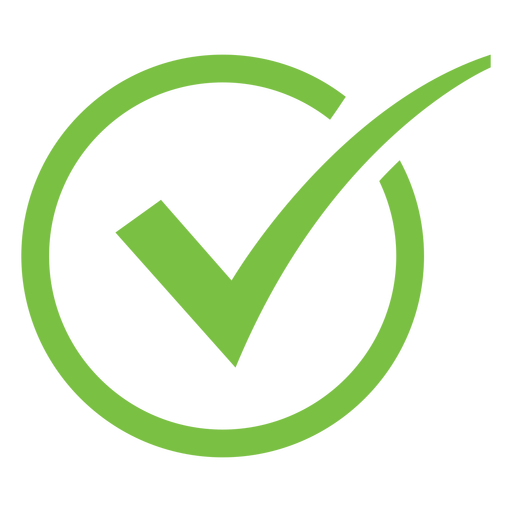
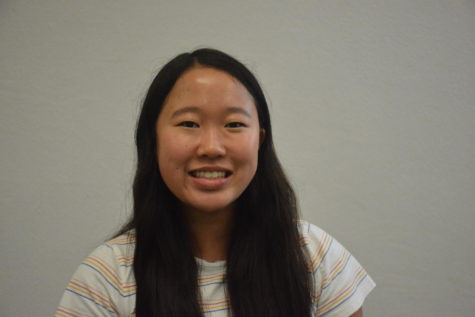
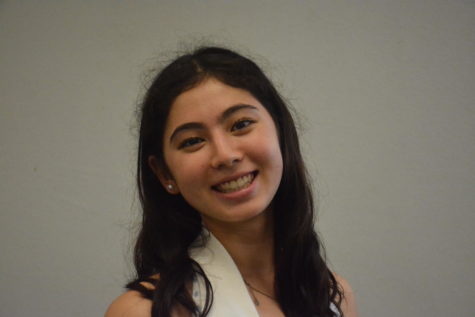
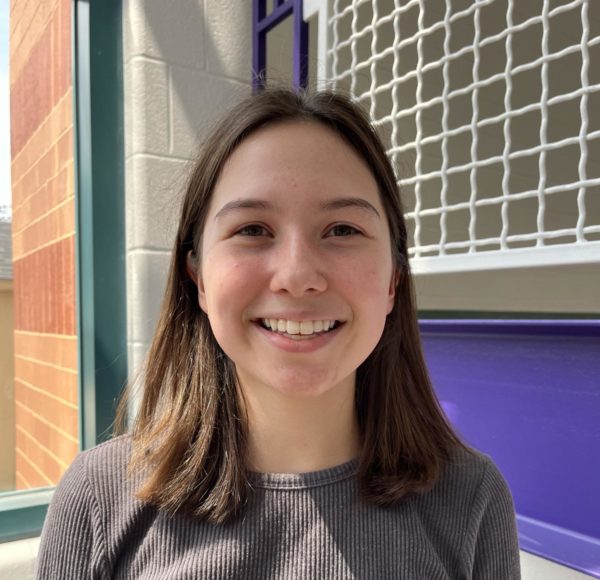
Kim • Mar 12, 2024 at 3:44 am
This is a very excellently written article! It touches on so many different important points regarding AI and uses great sources of evidence and statistics to further the conversation. I’m someone who graduated from college a few years ago when ChatGPT was on the rise during my last year, so I don’t have as much academic experience with it. This article was quite informative and well written. A great read!